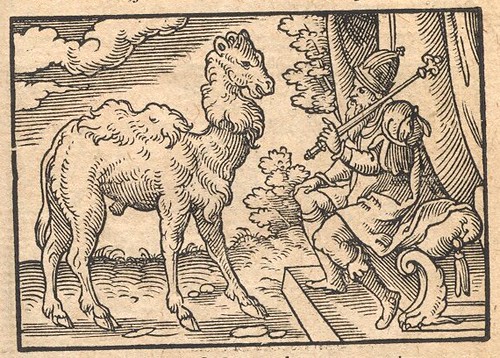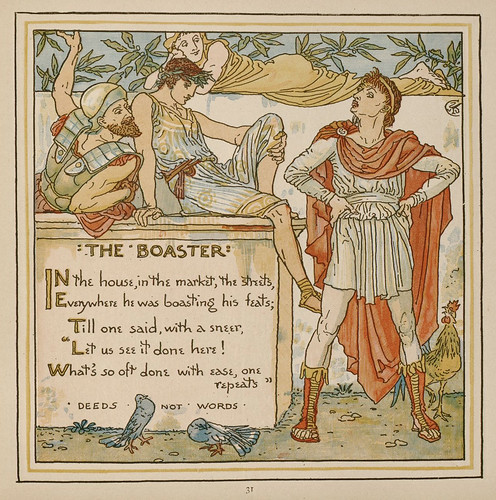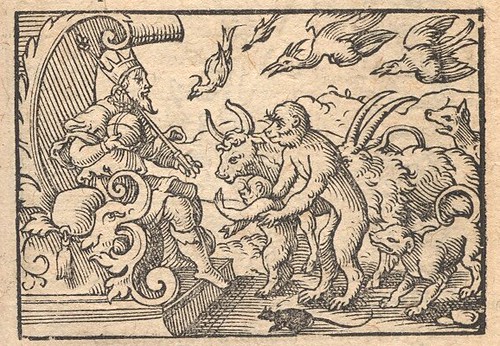This sundial is located in Meran, a city in the South Tyrol (Alto Adige in Italian), which is an autonomous province of northern Italy. At the top of the sundial there is an inscription that reads:
A·E·I·O·U, which stands for
Austriae Est Imperare Orbi Universo,
It is for Austria to rule the whole world (for other Latin interpretations of the acronym, see this
Wikipedia article: AEIOU).
Below the sundial is an inscription that reads:
AT IRREVOCABILIS · ULTIMA LATET
Clearly, the first word in the lower left-hand corner has been painted over so that only the last two letters are visible. The full reading should be:
VOLAT IRREVOCABILIS · ULTIMA LATET
The interpunct between the words
irrevocabilis and
ultima shows that there are two declarative statements here, not just one, with the implied noun
hora (hour, time) as the subject of both:
(the hour) flies, not to be called back · (the) final (hour) is hidden
Without the verb
volat, the motto simply does not make sense because the adjective "not to be called back" does not fit with hiding. What we have here are two different Latin cliches about time. On the one hand, time is something that flies, something that runs away and will not come back to you no matter how desperately you might call (
hora irrevocabilis). Meanwhile, as the present is slipping away irrevocably into the past, the future is unknown, something that is hidden from our knowledge (
latet).
Moreover, just above the motto there is a skull together with an hourglass, again reinforcing the two-part interpretation of the motto: the hourglass with sand running through it shows the movement of time (
volat irrevocabilis), while the skull is a "memento mori" of our final hour which is certain to come but which is hidden until it does arrive
(ultima latet).
Note that there has been an erasure in the upper right-hand corner also, but it is only a decorative element that has been covered over, not part of the inscription itself. Still, the symmetry of the top line shows clearly that a decorative element is missing in the upper right-hand corner, just as there are letters missing in the lower left-hand corner.
So, given the clear evidence for a reading of
VOLAT, I am very surprised not to find this interpretation provided somewhere online. Instead, I see repeated on many webpages the incorrect and incomplete transcription with
AT, which is then accompanied by a nonsensical English translation that results from the incorrect transcription. Presumably the main source for this repeated error is the
Wikimedia webpage which I have used for the source of this image; it features the incorrect transcription and this English translation: "But the last [hour] is hidden, not to be recalled."
If anyone has reason to think I am wrong about this, please let me know!
Meanwhile, the entire presentation is quite beautiful, as you can see in the image below. There is a sun with a face beaming down from the left-hand corner, and the signs of the zodiac at the bottom. Lovely!
Update: Thanks very much to ManfredK for alerting me to his photograph of this sundial at
Wikimedia:
ManfredK's high-resolution image allows you to see the detail for the sun, and also the hourglass and skull:
Here is the the image I had originally worked from at
Wikimedia, contributed by Alex1011:

.jpg)














































.jpg)
